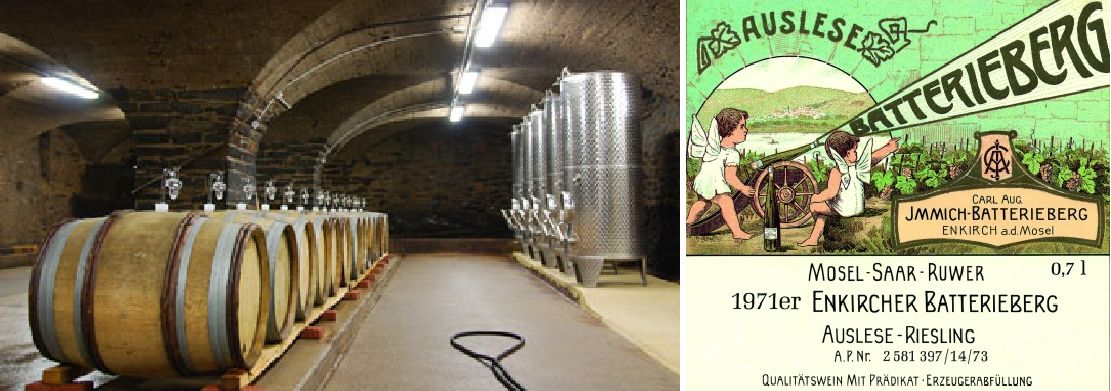The winery is located in the municipality of Enkirch in the German wine-growing region of Mosel. It is one of the oldest wine estates in Germany. The central part of the winery complex, which is still preserved today, was first mentioned in 908 in a document of the Carolingian King Louis IV (893-911), in which a transfer of the estate to the church was confirmed. The base of the building dates back to the second half of the 9th century. The supporting basalt column in the deep cellar is of Roman origin. In the 12th century, the estate was granted as a fief to the Princes of Esch. The Immich family, which is one of the oldest winegrowing families on the Moselle with a history dating from 1425 to 1989, was particularly influential in its development.

The estate as we know it today was founded by Carl August Immich. From 1841 to 1846, he worked a vineyard with countless explosive charges in order to achieve the best slope inclination and orientation towards the sun. This is why it was later named "Batterieberg". The vineyard was acquired by the Hamburg families Auerbach and Probst in 2010. Gernot Kollmann has been responsible for the management and winemaking since the 2009 vintage. After studying wine business management in Heilbronn, he worked in responsible positions at the Bischöfliche Weingüter Trier and Van Volxem wineries and then as a wine consultant at various wineries. Karl Höhlein is responsible for the vineyards.
The vineyards cover 7.5 hectares of vines in the single vineyard sites Batterieberg (sole ownership), Ellergrub, Steffensberg and Zeppwingert (Enkirch). Only very old Riesling vines are cultivated using the traditional Mosel stake training method, which are largely ungrafted. The grapes are harvested very late at optimum ripeness. The wines are mainly matured dry in stainless steel tanks or in large wooden barrels with long ageing on the lees. Following the tradition of the former natural wines, pure yeasts, enzymes, protein stabilisation, clarification aids and deacidification are not used.
Voices of our members

As honorary chairman of the Domäne Wachau, it is the easiest and quickest way for me to access the wein.plus encyclopaedia when I have questions. The certainty of receiving well-founded and up-to-date information here makes it an indispensable guide.
Hans-Georg Schwarz
Ehrenobmann der Domäne Wachau (Wachau)